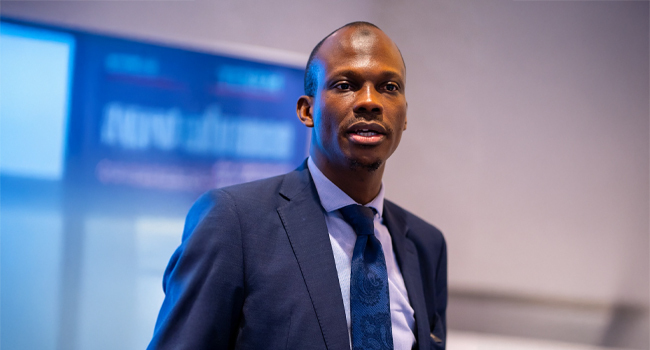 As vulnerable populations continue to face economic hardships in Nigeria, an expert in financial literacy and economic development has emphasized the need for targeted financial education programs to address financial instability and promote entrepreneurship. In a recently published study, the researcher explored the impact of financial literacy on economic empowerment and business creation, particularly among low-income families, young people and the unemployed.
As vulnerable populations continue to face economic hardships in Nigeria, an expert in financial literacy and economic development has emphasized the need for targeted financial education programs to address financial instability and promote entrepreneurship. In a recently published study, the researcher explored the impact of financial literacy on economic empowerment and business creation, particularly among low-income families, young people and the unemployed.
In a paper presented at a financial inclusion symposium, the expert highlighted how a lack of financial literacy leaves many individuals susceptible to predatory lending, financial fraud, and poor investment choices, which can lead to long-term economic insecurity. “Many vulnerable individuals struggle not because they lack the potential to succeed, but because they do not have the financial knowledge necessary to make informed decisions,” he said.
He highlighted that “the financial literacy challenges in Nigeria are significant and multifaceted with many Nigerians, particularly those in low-income communities, lacking access to essential financial education, which leaves them vulnerable to financial mismanagement and exploitation.”
The financial landscape in Nigeria is characterized by a high prevalence of informal financial practices, limited access to formal banking services, and a general lack of trust in the financial institutions. These factors contribute to a cycle of poverty and financial exclusion. Financial literacy programs tailored to the Nigerian context are crucial for breaking this cycle and fostering economic empowerment.
The findings from his study reveal that financial literacy significantly empowers vulnerable populations in Nigeria. There is strong evidence showing a positive correlation between financial education and financial stability. Additionally, his research demonstrates that financial literacy plays a crucial role in fostering entrepreneurship among these groups.
“Financial literacy is not just about budgeting and saving,” the expert explained. “It is about equipping people with the knowledge and tools they need to navigate the financial system, avoid debt traps, and invest in their future. When people understand basic financial principles, they make smarter decisions that can lift them out of poverty.”
He also disclosed that there is an urgent need for community-based financial education programs tailored to the unique challenges faced by vulnerable groups in Nigeria. “Traditional financial advice often assumes a certain level of stability, which many low-income individuals simply do not have,” he noted. “We need education programs that address real-world challenges—things like managing irregular income, avoiding high-interest loans, and understanding credit scores.”
The study also underscores the link between financial literacy and entrepreneurship, emphasizing that knowledge of financial management enables individuals to start and sustain businesses. “One of the biggest barriers to entrepreneurship in underserved communities is access to capital,” the researcher pointed out. “But what we found is that when individuals have strong financial literacy skills, they are better able to manage resources, seek funding opportunities, and successfully run their businesses.”
He called for more investment in financial education at both the policy and grassroots levels, urging local governments, non-profits, and financial institutions to step up efforts in financial literacy programs. “We cannot continue to ignore the financial knowledge gap,” he stressed. “Bridging this gap is essential for building a more inclusive economy where everyone has a fair chance to succeed.”
According to the study, one of the most effective approaches to improving financial literacy is integrating it into community programs and schools. “Financial education should start early,” the expert recommended. “If we teach financial skills in schools and continue reinforcing them in adult education programs, we can create a generation that is better equipped to handle economic challenges.”
Moreover, he pointed out that financial literacy is not just an individual issue but a broader economic concern. “When large segments of the population lack financial literacy, it creates a ripple effect on the economy, increasing reliance on social welfare programs, limiting consumer spending power, and reducing business growth,” he said.
The researcher further called on banks and financial institutions to take a more active role in financial literacy efforts. “Banks can do more than just provide financial products,” he suggested. “They should also invest in educating their customers, offering free financial counseling, and simplifying financial processes for underserved communities.” By doing so, they can build trust and encourage greater participation in the formal financial system.
To address these challenges, the study recommends that community organizations develop targeted financial literacy programs focusing on practical skills such as budgeting, saving, and financial decision-making. “We need more initiatives that empower people to take control of their finances, not just give them temporary relief,” he emphasized.
In conclusion, the expert stressed improving financial literacy in Nigeria is a key step toward reducing economic inequality and fostering sustainable entrepreneurship. “If we want to build stronger communities and a more resilient economy, we must prioritize financial education,” he said. He reiterated that “by prioritizing financial education at both the policy and grassroots levels, Nigeria can build stronger communities and a more resilient economy.” The expert mentioned that “Financial literacy is not just an individual issue but a broader economic concern that impacts the entire society and therefore, concerted efforts from the government, non-profits, and financial institutions are essential to bridge the financial knowledge gap and create a more inclusive economy where everyone has a fair chance to succeed.”






